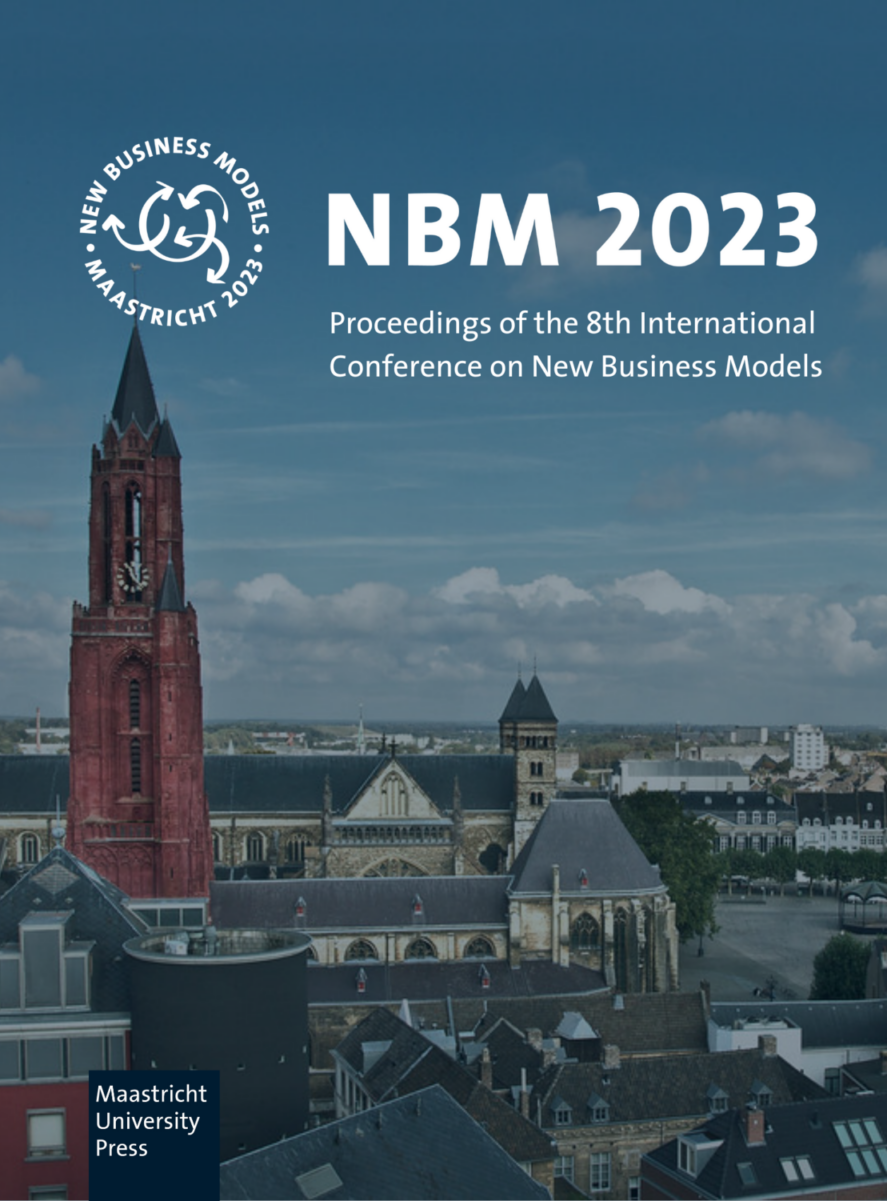This 8th edition of the NBM annual conference, hosted by the School of Business and Economics at Maastricht University, served as a platform for exchanging knowledge, ideas, and experiences in a new emerging field, New Business Models. Exploring new business models has emerged as a promising avenue for organizations to address these complex issues while creating value for their stakeholders and society.
Versions and publication details

Online version
DOI: 10.26481/mup.2302
Papers and Abstracts: Full Text via Maastricht University Press (HTML, PDF, EPUB, WORD, Plain Text, JATS XML, LaTeX)
Description
Link to the conference website
The New Business Models Conference 2023, hosted by Maastricht University, brought together scholars and industry leaders to explore innovative approaches to developing sustainable and responsible business models. With global challenges such as climate change and socioeconomic disparities, there is a pressing need to move beyond profit-focused mindsets and create business models that generate value for stakeholders and society.
The conference proceedings consist of peer-reviewed abstracts and papers covering various aspects of designing, implementing, and evaluating new business models for driving positive societal change. They showcase successful case studies from Europe and the Global South, emphasizing the potential of new business models to address pressing global challenges, foster collaboration, and create sustainable value.
The proceedings identify several areas for future research, including circular economy business models, sustainability and resilience, stakeholder engagement, social impact measurement, cross-sector collaboration, human-centric design, and policy and regulation. Researchers and practitioners are encouraged to contribute to advancing knowledge and practices in new business models, promoting sustainable, responsible, and impactful approaches across industries.
The 8th edition of the NBM conference featured 171 accepted presentations out of 203 submissions, with participants from 41 different countries. The conference program included 15 tracks, plenary sessions, and workshops. Keynote speakers, Mr John Elkington and Mrs Suzanne Wisse-Huiskes shared their expertise on sustainable capitalism and impact investing, respectively. The closing plenary discussed the role of universities in building partnerships for sustainable business models.
Special acknowledgements were given to the NBM board members, colleagues at the School of Business and Economics, track chairs, doctoral colloquium mentors, and student volunteers for their contributions. Financial support from the Maastricht Convention Bureau and University Fund Limburg SWOL was also recognized.
The conference organizers aim to inspire collaboration and dialogue among researchers, practitioners, and policymakers to promote the adoption of sustainable and responsible business practices that create long-term societal value. The proceedings serve as a valuable resource for those interested in exploring the transformative potential of new business models.

